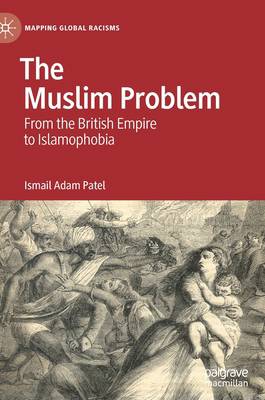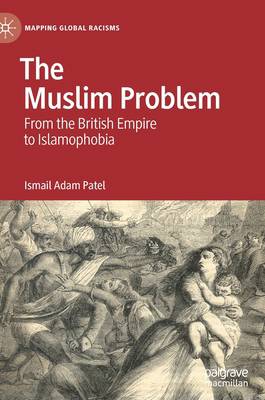
- Retrait gratuit dans votre magasin Club
- 7.000.000 titres dans notre catalogue
- Payer en toute sécurité
- Toujours un magasin près de chez vous
- Retrait gratuit dans votre magasin Club
- 7.000.000 titres dans notre catalogue
- Payer en toute sécurité
- Toujours un magasin près de chez vous
Description
This book explains the increasing incidences and normalisation of Islamophobia, by analysing the role of signifiers of free speech, censorship, and fatwa during the Satanic Verses affair in problematising the figure of the Muslim. Ismail Patel develops the notion of Islamophobia not as a continuation of the antagonistic relation from the British Empire but as a postcolonial reformulation of the figure of the Muslim.
The book views Islamophobia studies as a paradigm, engages in the debate of Islamophobia as a global phenomenon, investigates the contestation over its definition and challenges the view of Islamophobia as a reserve of the far-right. It assesses the debate around the concept of identity and shows how the colonised figure of the Muslim provided significance in constructing British imperial identity. Providing a decolonial, counter-Islamophobia approach that challenges Britishness' exclusionary white symbolic content, the book calls for a liberating ideaof Britishness that promotes a post-racist rather than a post-race society.
Theoretically rich in analysis, this book will contribute to discussions of identity formation, Britishness, Islamophobia and counter-Islamophobia. It will be of use to students and researchers across history, politics, sociology, cultural studies, literary studies, and anthropology.
Spécifications
Parties prenantes
- Auteur(s) :
- Editeur:
Contenu
- Nombre de pages :
- 276
- Langue:
- Anglais
- Collection :
Caractéristiques
- EAN:
- 9783030758417
- Date de parution :
- 17-12-21
- Format:
- Livre relié
- Format numérique:
- Genaaid
- Dimensions :
- 148 mm x 210 mm
- Poids :
- 535 g







